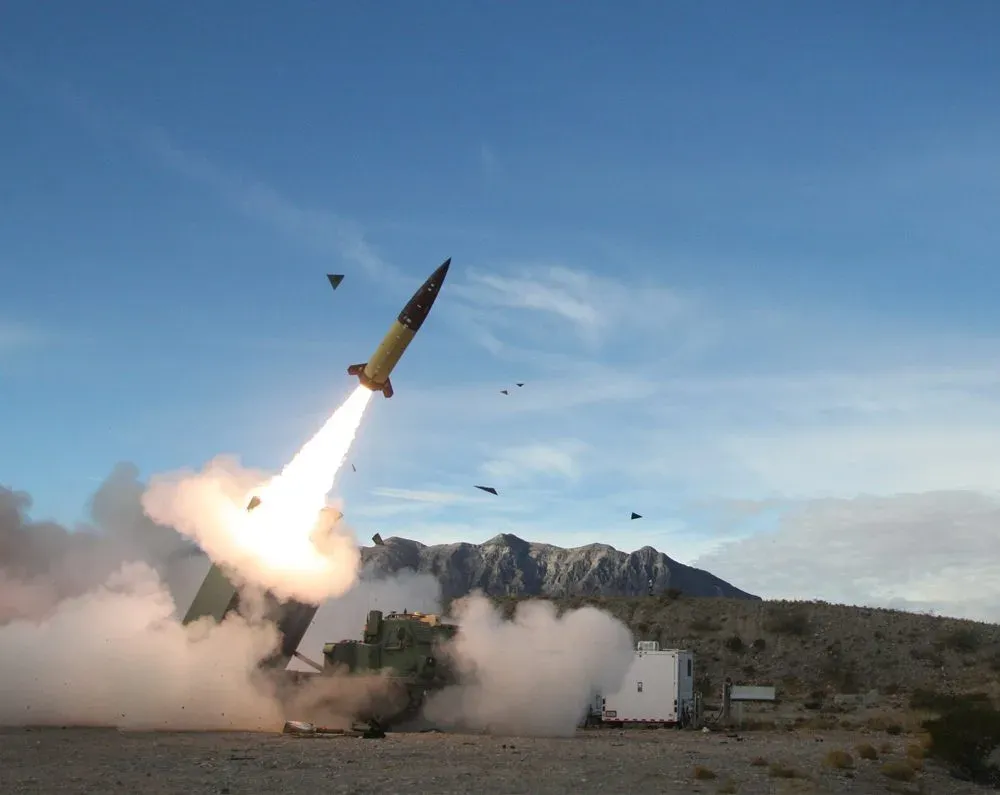Business News
All about Ukraine’s ATACMS strike in Russia and Putin’s new nuclear doctrine that jolted markets
.png)
4 min read | Updated on November 19, 2024, 12:45 IST
SUMMARY
Indian equity markets tumbled from the day’s highs following reports of Ukraine’s first-ever strike on Russian territory using US-made ATACMS missiles. The Sensex plunged 873 points to close at 77,578.38, while the Nifty50 ended at 23,518.50, still in the green but off its intraday peak.

ATACMS missile, a long-range weapon now authorised for use against Russian territory.
Ukraine-Russia escalation
"Indeed, for the first time, we used ATACMS to strike Russian territory. The strike was carried out against a facility in the Bryansk region, and it was successfully hit," the news agency quoted the source as saying.
In an official statement, Kyiv's military said it struck a large Russian weapons depot near the town of Karachev in the Bryansk region but did not mention the use of ATACMS.
What is ATACMS?
Developed by US aerospace and defence company Lockheed Martin, ATACMS is a long-range, guided missile with a maximum range of 300 km. The Army Tactical Missile System, or ATACMS (pronounced “attack ’ems”), was developed during the Cold War to destroy Soviet targets. The conventional surface-to-surface artillery weapon system, fired from the HIMARS and MLRS M270 platforms, was already being used by Kyiv in its war against Russia, but only on targets in occupied areas of Ukraine.
Why Biden allowed the expanded use of ATACMS
While Kyiv had been lobbying Washington for a long time to get a nod to use ATACMS against targets in Russian territory, US President Joe Biden previously refused the request fearing sharp escalation. However, the return of Donald Trump, who promised a quick end to the war, has triggered concerns that Moscow could make significant advances on the battlefield.
Biden, according to US media reports, has now authorised Ukraine to use the ATACMS to strike deeper inside Russia. The approval is being justified as a response to the presence of North Korean troops fighting alongside Russian forces.
Putin signs new Russian nuclear doctrine
Russian President Vladimir Putin on Tuesday signed a revised nuclear doctrine, declaring that a conventional attack on Russia by any nation supported by a nuclear power would be considered a joint assault on his country. The doctrine follows Biden’s decision to permit Ukraine to strike targets inside Russia using US-supplied ATACMS.
When asked about the timing of the move, Kremlin spokesperson Dmitry Peskov said the document was published “in a timely manner”. He said Putin instructed the government to update it earlier this year so that it is “in line with the current situation.”
Why ATACMS attack, new nuclear doctrine have triggered concerns
While Putin first announced changes in the nuclear doctrine in September, the signing of the document against the backdrop of Washington allowing expanded use of ATACMS is seen as an escalation. The updated doctrine explicitly states that an attack by a non-nuclear power, when backed by a nuclear-armed state, will be treated as a “joint attack on the Russian Federation”. It also warns that aggression by any member of a military bloc will be viewed as an attack by the entire alliance, in an obvious reference to NATO.
The document, however, does not specify whether such an attack would necessarily trigger a nuclear response, reported the Associated Press.
Since the invasion began, Putin and other Russian officials have repeatedly invoked the country’s nuclear arsenal as a warning to NATO and the West against increasing their support for Kyiv.
Russian hardliners had pushed for a more robust doctrine, arguing the previous version failed to deter Western military aid to Ukraine and undermined Moscow’s credibility. The latest update, analysts say, is a clear attempt to strengthen Russia’s nuclear posture and compel the West to reassess its support for Ukraine as Moscow’s offensive shows signs of slowing.
About The Author
Next Story

